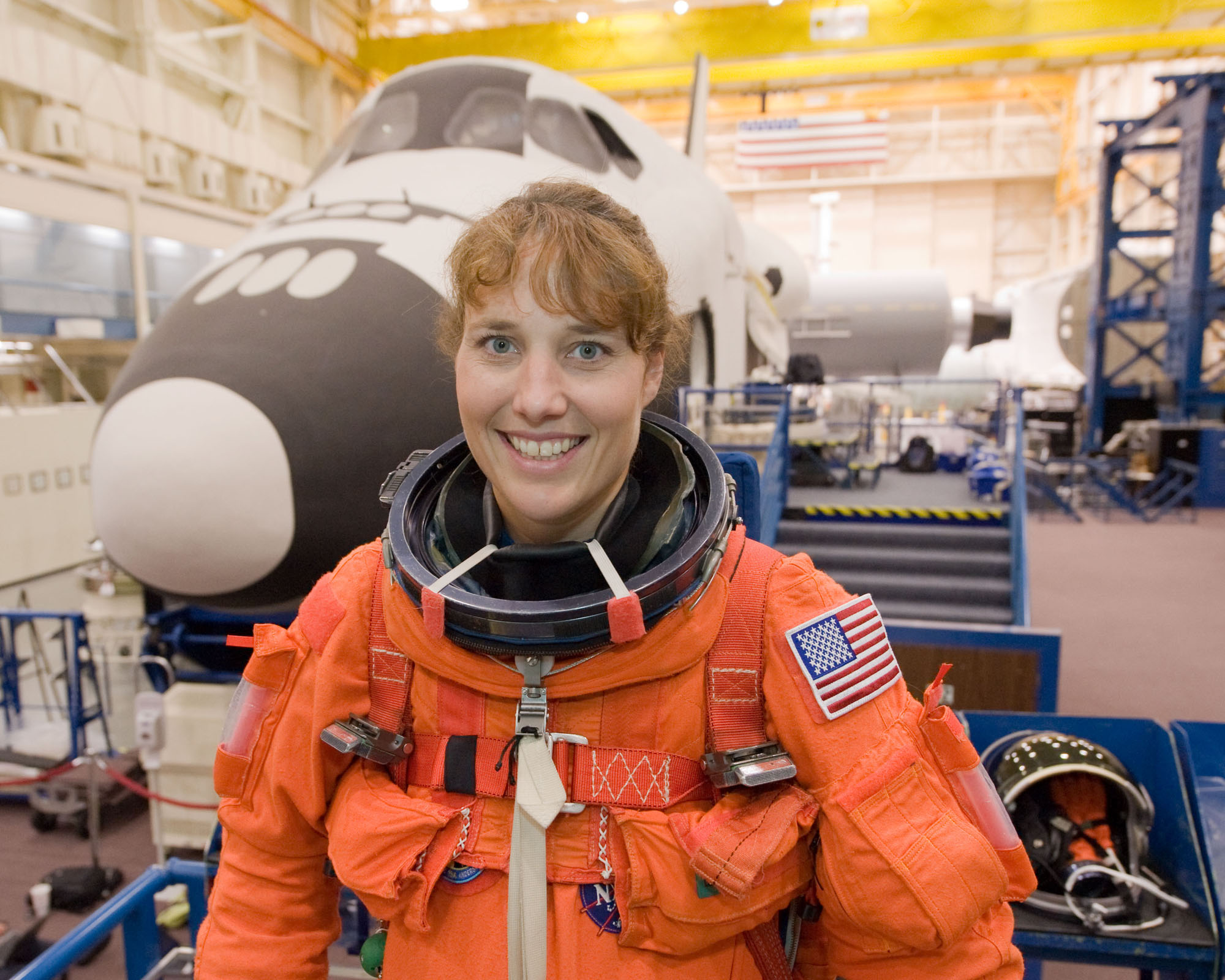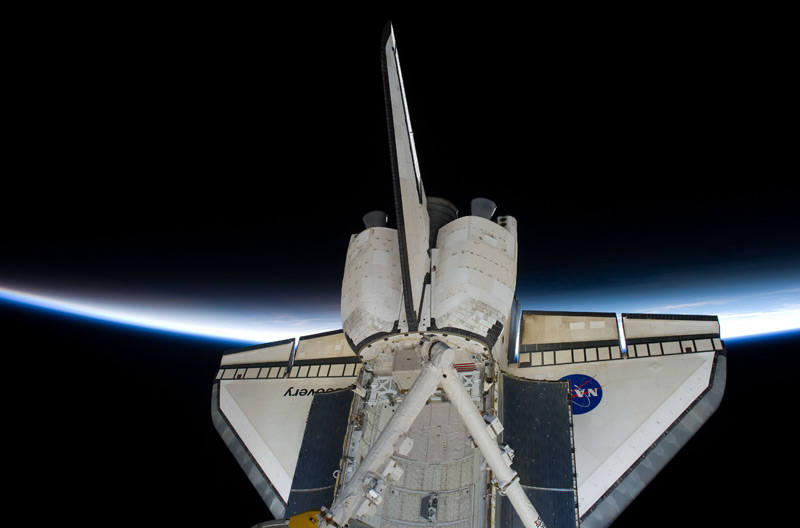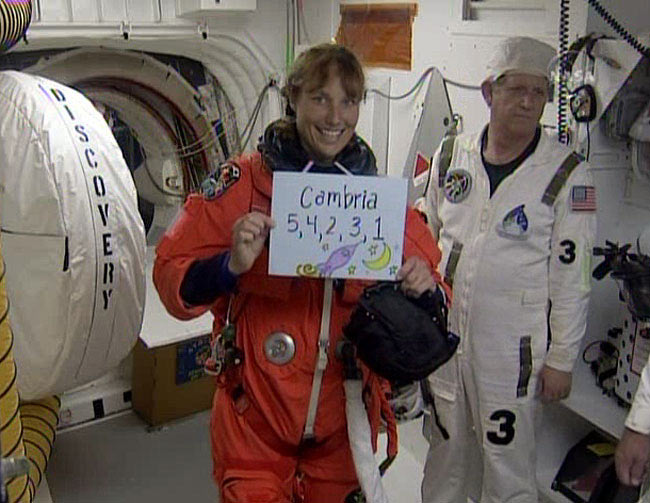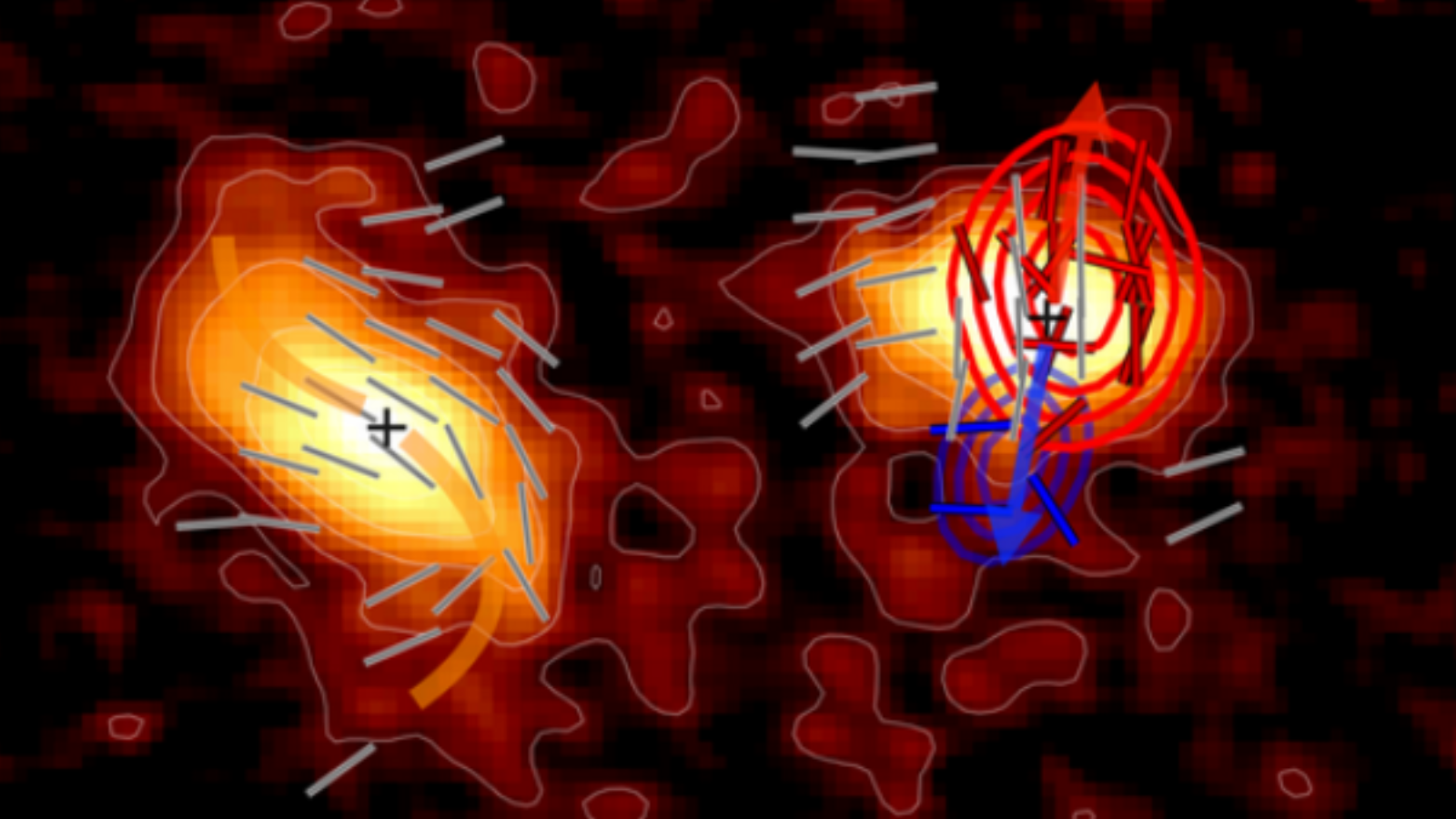Educator-astronaut talks to 'kids at heart' for online talk Tuesday
Tune in to "The Virtual Astronaut" talk with Dottie Metcalf-Lindenburger on Oct. 27 at 7 p.m. EDT (2300 GMT).
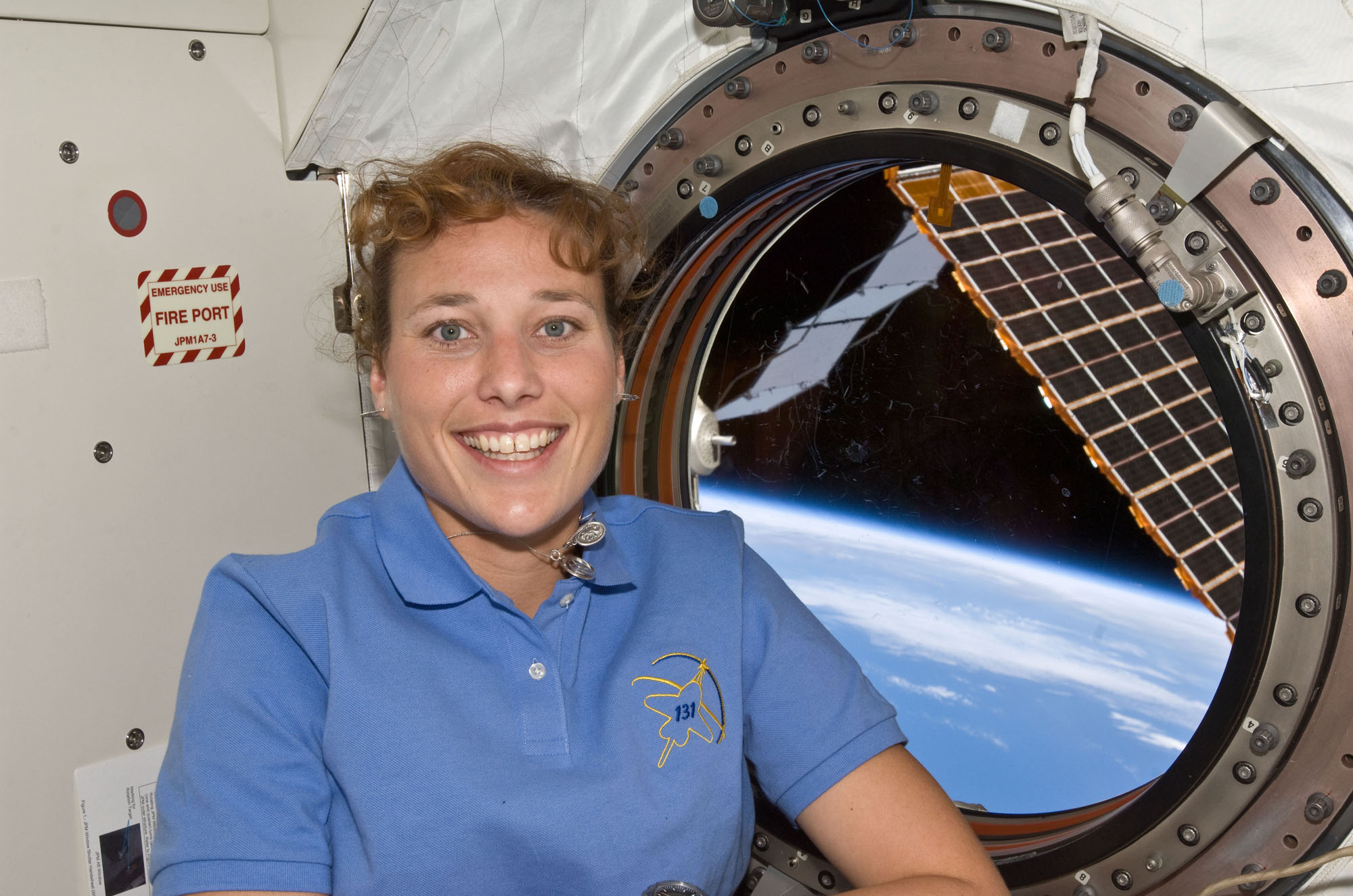
Kids or "kids at heart" can dress up for Halloween or celebrate the fall season along with astronaut Dottie Metcalf-Lindenburger, who will talk about space education in an online talk Tuesday (Oct. 27).
Metcalf-Lindenburger will talk about her educator-astronaut background and her 15-day space shuttle mission in 2010 as part of "The Virtual Astronaut" series of talks, and you can buy tickets here.
The STS-131 astronaut has a special background for NASA spaceflyers, in that she is one of a handful of educator astronauts selected for training and spaceflight. Metcalf-Lindenburger, an alumnus of Space Camp as a child, taught Earth science and astronomy at the high school level before NASA selected her as an astronaut in 2004.
Related: 'The Virtual Astronaut' launches with live space explorer event series
It was student questions about space that led her to NASA's website, Metcalf-Lindenburger told Space.com. "That launched my own career, because I saw they were going to be hiring teachers," she said.
Metcalf-Lindenburger arrived at an agency busily redesigning the shuttle and its external tank for safety after falling foam breached the hull of the space shuttle Columbia, killing seven astronauts during reentry the year before she was selected. She also remembered, as a child, seeing the fatal explosion of space shuttle Challenger in 1986, with educator-astronaut Christa McAuliffe on board.
"When I was hired, I felt this was an opportunity to keep the legacy of Christa and the rest of the Challenger crew alive — and we had also just lost Columbia," Metcalf-Lindenburger said. Rebuilding the program, she added, was "a significant challenge" for NASA, but one that she felt was worth pursuing due to the shuttle's contributions to fields like research and education.
Breaking space news, the latest updates on rocket launches, skywatching events and more!
Metcalf-Lindenburger was one of three mission specialist-educator astronauts NASA selected in 2004, the other two being Joe Acaba (who has now flown three times in space) and Ricky Arnold (a now two-time spaceflyer).
The Educator Astronaut selection program ran once, during the 2003 astronaut recruitment that started weeks before Columbia's demise. It was a successor to the 1984 Teacher in Space program that had selected McAuliffe and Barbara Morgan as astronauts, before being cancelled in 1990; Morgan eventually retrained as a mission specialist and flew on STS-118 in August 2007.
Metcalf-Lindenburger recalled watching STS-118 launch from the air, in one of the NASA weather planes looking out for the safety of space shuttle Endeavour in the hours before liftoff. "That was pretty surreal, because the shuttle looked like a little toy as it was lifting off. That was my first [launch], and then I was able to see others after that."
While all astronauts are trained in public engagement and working with schools, Metcalf-Lindenburger said her skillset in the classroom was something she really enjoyed during the typical astronaut talks in classrooms. Like other astronauts, she was tasked with speaking with students from kindergarten to university and getting students interested in spaceflight along with science, technology, art, engineering and math (STEAM) topics that are related to space.
"I love the late elementary school and middle school [classrooms] because that's when students start to think about what they want to be when they grow up. The great thing about this era is you can change your job multiple times; it's pretty common ... there are a lot of options and the students are in control of a lot of the options," Metcalf-Lindenburger said.
"I always really emphasized the 'work hard' aspect," she added. "There were some very gifted astronauts, and there are also astronauts who are maybe like me, who work hard, and that hard work has paid off. That's the grit that you need. I wanted to help them [students] realize anything you want to do, it's going to require your engagement, your effort and your hard work. I also tried to emphasize you need to have a network and mentorship. I definitely believe in mentors, and in friends."
Metcalf-Lindenburger also enjoyed the experience of learning from the skillsets of other astronauts. She still has fond memories of being surrounded by other members of the 2004 class, studying for the inevitable skills tests astronaut candidates need to pass to qualify for flight opportunities. Former Navy SEAL Randy Bresnik was a great asset in keeping the group calm, she recalled. "I love the program, because it really was not just about you. It was about the team and making it better," she added.
Related: What it's like to become a NASA astronaut: 10 surprising facts
STS-131 was a complex mission that launched a giant cargo pod, known as the multipurpose logistics module, filled with supplies and equipment to help International Space Station astronauts. During three spacewalks that Metcalf-Lindenburger helped support, the crew removed and replaced an ammonia tank assembly. The spacewalks were complex and dangerous due to the toxicity of ammonia, but the crew was prepared through extensive training — and they persisted and completed everything successfully.
Metcalf-Lindenburger said she loved spaceflight, and recalled one of her video calls with her then three-year-old daughter. "She wanted to try to float herself," Metcalf-Lindenburger said. "She jumped into the air and my mother-in-law and husband lifted her up, so she was floating like me."
The entire crew was eager to see their families on landing day, she recalled, and then came the slight disappointment of realizing they'd have to wait a day; the weather interfered with the safety conditions NASA mandated for returning to the Kennedy Space Center in Florida. "But it was so fun to have that extra day [in space]," she said. "We didn't have anything scheduled, and we took so many photos out the window and really enjoyed each other's company."
Metcalf-Lindenburger's ground support for other missions was extensive, including supporting tool checks for space station missions and acting as a "Cape Crusader" to get the last three space shuttle crews ready for flight in 2011. She was in crew quarters, within range of STS-135, in the minutes before liftoff on July 8, 2011 and asked the team for a special favor in between her safety duties.
"I asked, 'If I just run out really fast, do you think it would be okay if I watched the last one fly?" They said, 'Yes, Dottie, I think you'll be able to do just that." So that's what I did. I ran outside, but there was a little bit of a cloud deck and I didn't get to see the shuttle go. But I did feel it. I wanted to know they were safe and off. I'll always remember that."
Follow Elizabeth Howell on Twitter @howellspace. Follow us on Twitter @Spacedotcom and on Facebook.

Elizabeth Howell (she/her), Ph.D., was a staff writer in the spaceflight channel between 2022 and 2024 specializing in Canadian space news. She was contributing writer for Space.com for 10 years from 2012 to 2024. Elizabeth's reporting includes multiple exclusives with the White House, leading world coverage about a lost-and-found space tomato on the International Space Station, witnessing five human spaceflight launches on two continents, flying parabolic, working inside a spacesuit, and participating in a simulated Mars mission. Her latest book, "Why Am I Taller?" (ECW Press, 2022) is co-written with astronaut Dave Williams.
